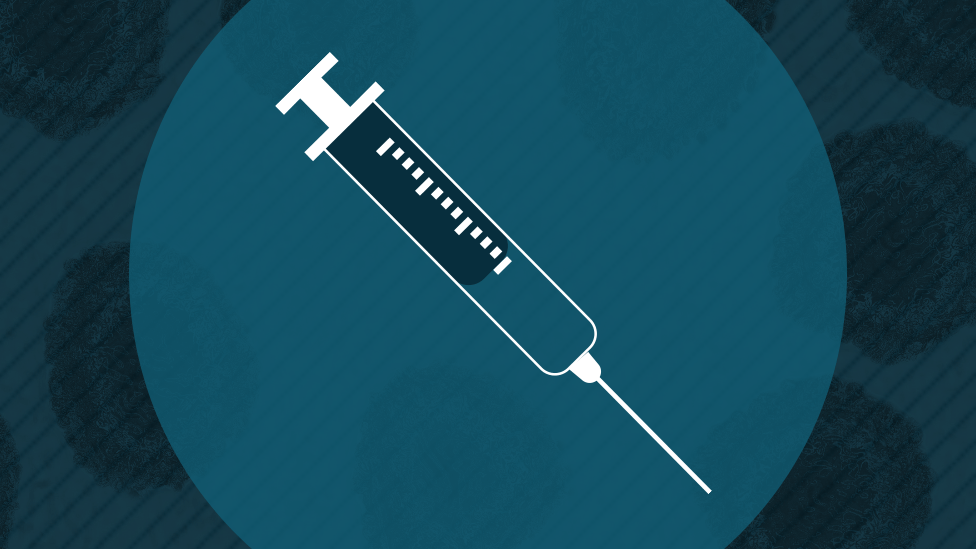Coronavirus: Japan's low testing rate raises questions
- Published
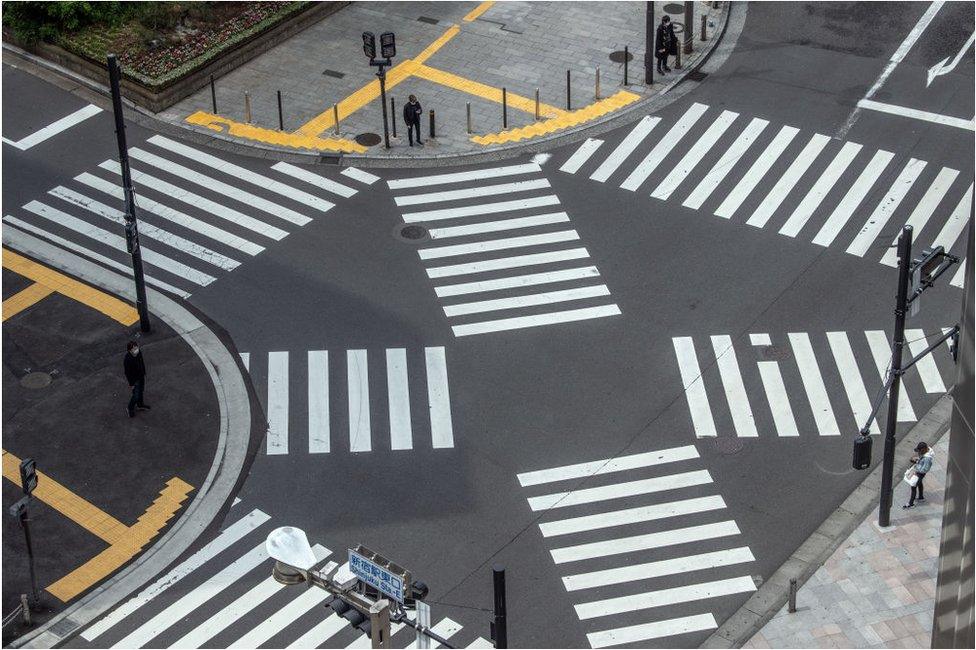
Japan's famously busy pedestrian crossings lie empty
Why is Japan not in lockdown? It's a question I've been asked numerous times by friends all over the world. That's not surprising given what's going on in Europe and America. But it is perhaps the wrong question. Taiwan, Hong Kong, South Korea and most of mainland China, have also never had full lockdowns.
For those trying to understand what's going on in Japan, the much more puzzling question is why there is so little testing for Covid-19.
When you look at Germany or South Korea, Japan's testing figures look like they're missing a zero.
Take Tokyo, population 9.3 million, and centre of Japan's epidemic. Since February, just 10,981 people have been tested for Covid-19. Of those, just over 4,000 were positive.
But those figures are striking both because the number tested is so small and because the percentage testing positive is so high.
What it shows is Japan is only testing people who are already quite sick. In fact, the official guidelines for doctors say they should only recommend a test if the patient has pneumonia.
When we asked why the level of testing done is about half of the capacity weeks after the government has started to ramp up its testing, a health ministry official explained it reflects the number of tests doctors are prescribing.
This is leading to some rather extraordinary stories from those trying to get tested.
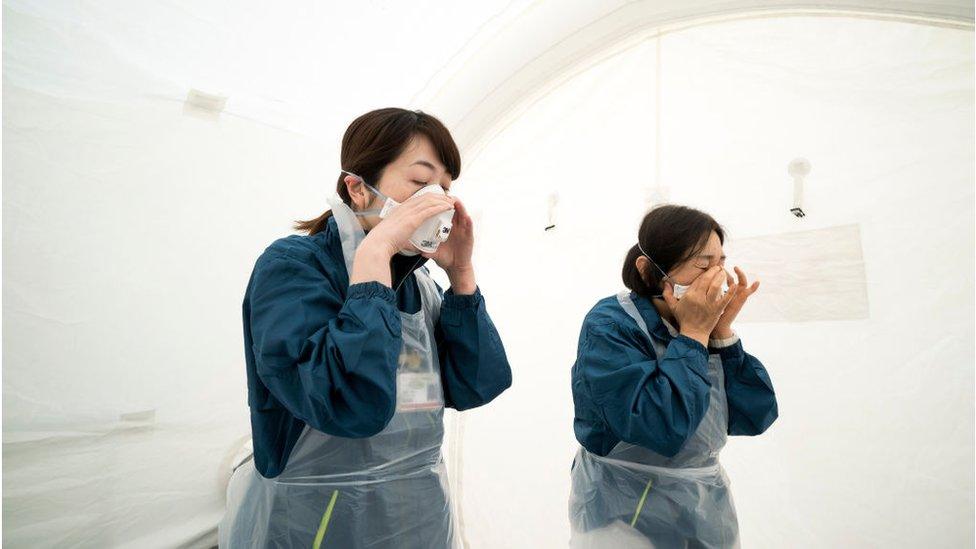
Some are questioning why Japan is not testing more widely
Jordain Haley is an American working in Japan as a business analyst and volunteer translator. Via Skype she told me what happened when she helped a friend, who doesn't speak fluent Japanese, to get a test.
On 10 April, her friend had developed a fever and cough, but waited four days, as per the guidelines.
"By then she was having trouble breathing and was dizzy from lack of oxygen," Jordain tells me. "I called the Covid hotline. They refused to help. They said if she's sick she should call an ambulance."
The following day (Wednesday 15 April) her friend found a clinic where they gave her a chest X-ray. The doctor said she probably had Covid-19, but not bad enough to be hospitalised. He sent her home and told her to isolate.
Late on Thursday night Jordain's friend called. She was in distress.
"I could hear the EMT (ambulance crew) in the background. She was coughing and wheezing so much I couldn't make out what she was saying. It took them two hours to find a hospital that would accept her. The whole time her breathing was getting worse and worse."
The hospital did another chest X-ray and told her friend to get tested for Covid-19 at her local health centre. But the doctor wouldn't write a recommendation. Instead she was sent home in a taxi.
"They said she should roll down the windows in the cab, and that it would be ok," Jordain says, rolling her eyes.
On Friday 17 April Jordain called the local health centre. For two hours she was passed from one desk to another. She answered scores of questions. Finally, she got her friend an appointment. But it came with a warning.
"She must use the side entrance." Jordain was told. "She must not tell anyone where this testing is taking place. It could cause a commotion."
Apart from the distress caused to someone who thinks their life is in danger, why does this matter? After all, Japan has very few deaths from Covid-19, still below 400.
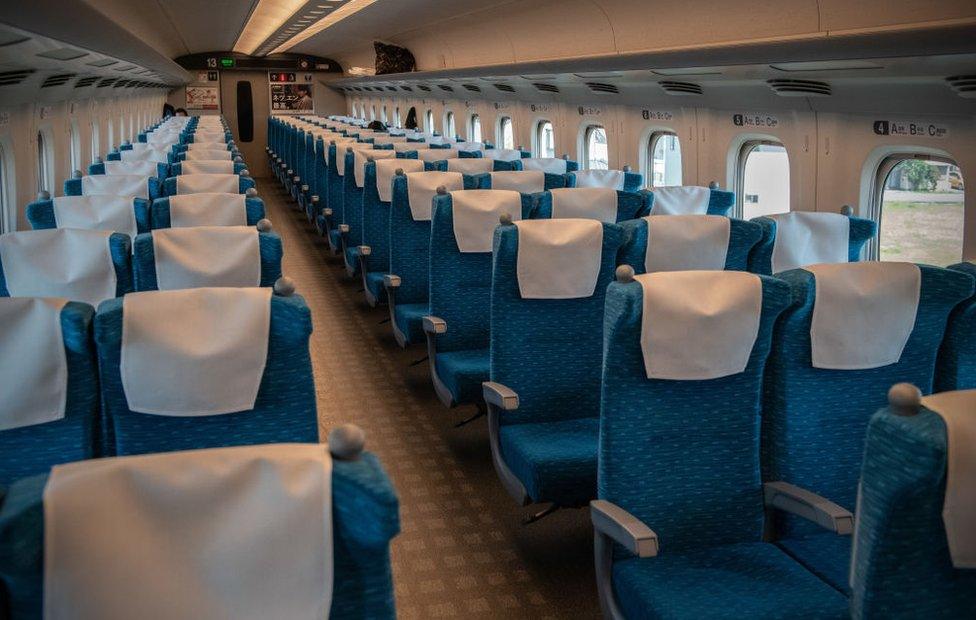
A shinkansen bullet train carriage is almost completely empty in Yokohama
On social media I am often told: "Japan is identifying those who really need help and its medical care is excellent, and that's why so few are dying."
This is not untrue according to Professor Kenji Shibuya of Kings College London.
"From the physician's point of view, it makes sense," he says. "Forget about mild cases, focus on cases with major symptoms and save lives. Focus testing on those who have symptoms."
But, says Professor Shibuya, from a public health point of view, Japan's refusal to test more widely is incredibly risky.
He points to a study done by Keio University in Tokyo.
Last week, the University hospital published a study of Covid tests done on patients admitted for non-Covid related illnesses and procedures. It found that around 6% of them tested positive for Covid-19.
It is a small sample and not "generalisable". But Professor Shibuya still describes it as "very shocking".
"We are definitely missing a lot of asymptomatic and mildly symptomatic cases," he says. "There is clearly widespread community transmission. I am very worried by this situation."
How many? He is not sure. But based on the Keio results he thinks it could be from 20 to 50 times the official figure. That would mean between 280 and 700 thousand people might be infected in Japan.
Without more testing it is impossible to know. But anecdotal evidence supports the idea that infections are far wider than reported.

What do I need to know about the coronavirus?
EASY STEPS: What can I do?
CONTAINMENT: What it means to self-isolate
MAPS AND CHARTS: Visual guide to the outbreak
VIDEO: The 20-second hand wash

Among the small number of deaths are famous comedian Ken Shimura and actress Kumiko Okae. High profile infected people include seven sumo wrestlers, a TV presenter, two former professional baseball players, and a famous screen writer.
"Currently 70%-80% of new infections recorded in Tokyo do not come from any previously known cluster," says Dr Yoshitake Yokokura, the head of the Japan Medical Association. "We need more prompt testing and we need the results more quickly."
According to official figures, the number of new infections in Tokyo has now been falling for over a week. Good news? Not necessarily.
"I would like to believe the numbers are really decreasing," says Dr Yokokura, "but the number of tests is insufficient to tell that."
This has direct implications for Japan's ability to lift its state of emergency, which is currently supposed to end on 6 May.
"It is not possible to lift the state of emergency at this stage," says Dr Yokokura. "We need a sustained decrease in new cases, and we need the reproduction rate (the number of people that one infected person will pass the virus onto, on average) to be well below one to do that."
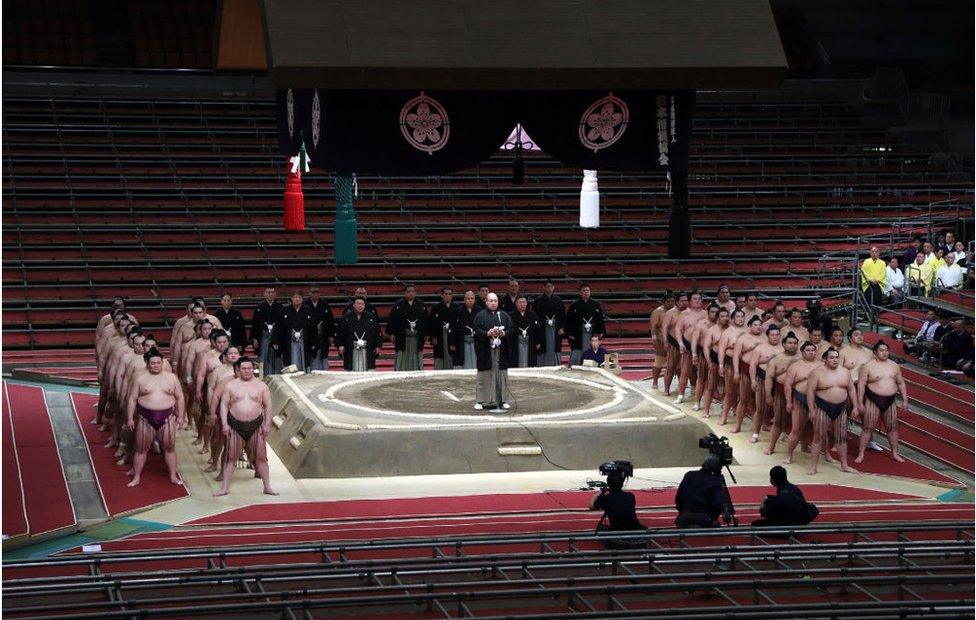
Sumo events have been held behind closed doors since earlier this year
This week Japan begins its 'Golden Week' holiday. According to the governor of Okinawa, 60,000 people have booked flights to the island during the holiday.
Governor Denny Tamaki is pleading with them to stay away.
"I am sorry to tell you but Okinawa is under a state of emergency," he wrote on social media. "Please cancel your trip to Okinawa now."
The weather for the next week is looking hot and sunny. People will be tempted to head to the beaches and mountains and, without knowing it, some percentage will inevitably be taking the virus with them.
Professor Shibuya says it is imperative that Japan now abandon its current strategy and increase testing.
"Without much wider testing," he says, "it will be very hard to end this pandemic."
- Published16 April 2020
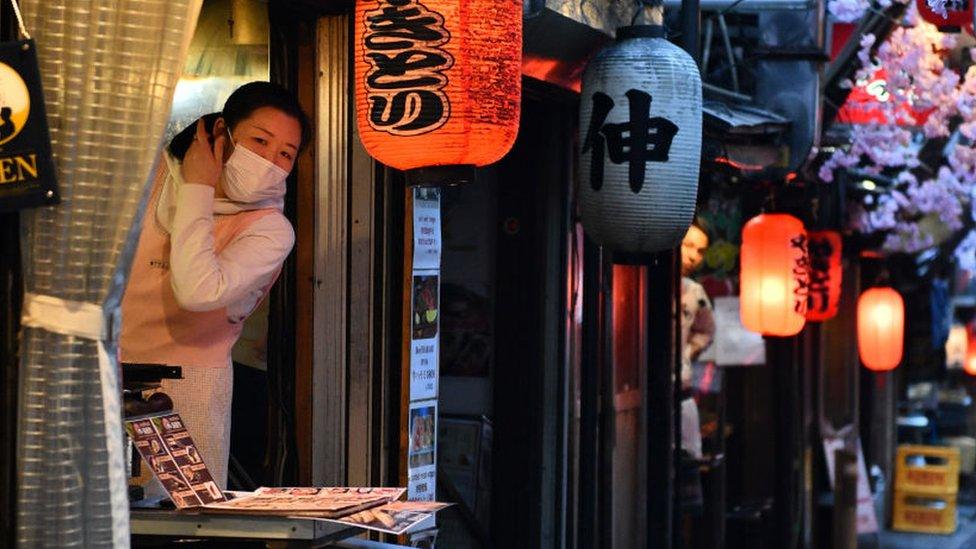
- Published27 April 2020
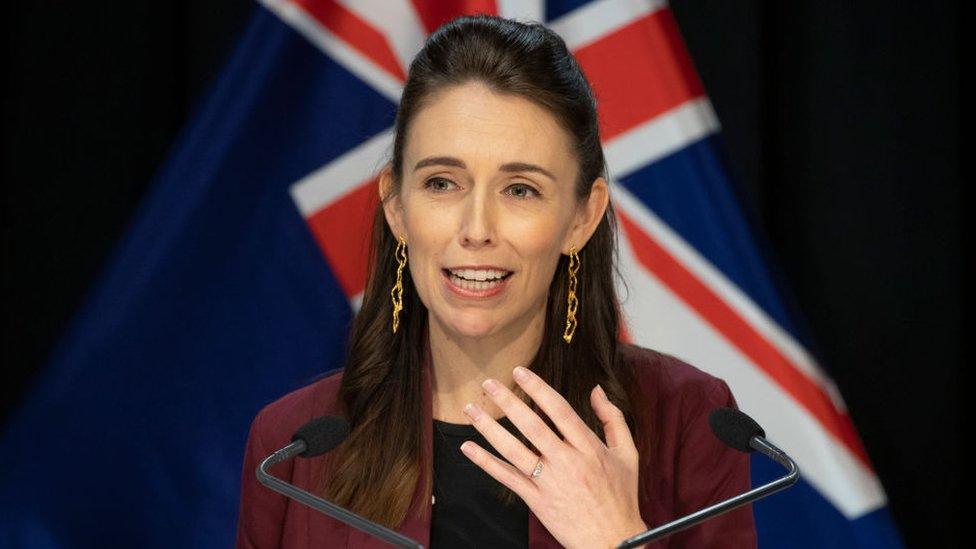
- Published28 May 2021
